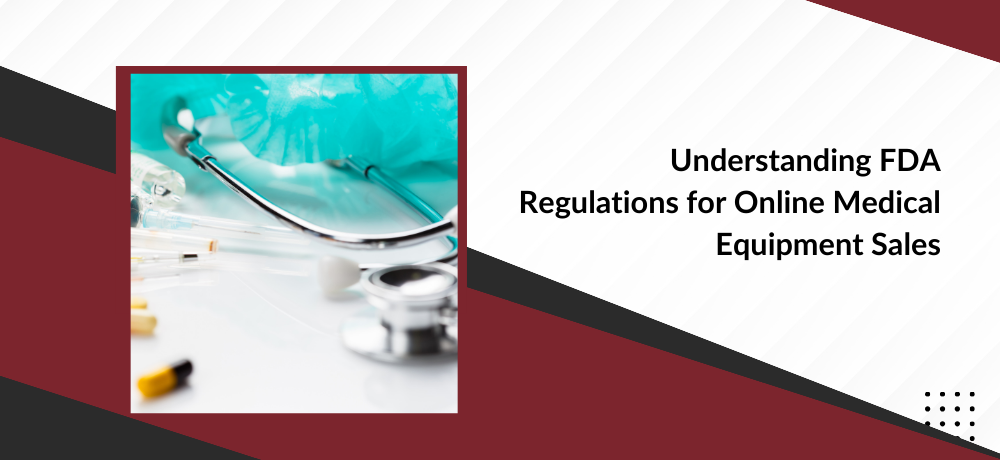Understanding FDA Regulations for Online Medical Equipment Sales

In the ever-evolving landscape of online medical equipment sales, it's crucial to be well-informed about the regulations set by the FDA. As a [Your Profession], I recognize the significance of complying with these regulations to ensure the safety and legality of medical equipment purchases. In this blog, we'll delve into the key aspects of FDA regulations for online medical equipment sales.
Device Classification and Clearance Process:
Online sellers of medical equipment must grasp the FDA's device classification system, which categorizes devices into three classes (Class I, II, and III) based on risk. Class I devices pose the lowest risk, while Class III devices carry the highest risk. The clearance process involves submitting a premarket notification (510(k)) or premarket approval (PMA) depending on the device class. Sellers need to navigate this process diligently to ensure compliance.
Quality System Regulation (QSR) Compliance:
The FDA enforces Quality System Regulation to ensure that medical devices are manufactured, packaged, and labeled in a way that meets predetermined quality standards. Online sellers must adhere to these regulations, implementing quality control measures in their operations. This involves maintaining comprehensive records, establishing corrective and preventive action procedures, and regularly undergoing inspections to guarantee ongoing compliance.
Unique Device Identification (UDI) Requirements:
The FDA mandates the use of Unique Device Identification, a system that assigns a unique code to each medical device to enhance traceability. Online sellers need to ensure that the medical equipment they offer complies with UDI requirements. Implementing UDI not only aids in product tracking but also facilitates timely recalls, fostering a safer healthcare environment for consumers.
Adverse Event Reporting and Post-Market Surveillance:
Beyond the initial clearance and sale, online sellers must be vigilant in monitoring their products post-market. Adverse events or product malfunctions must be reported to the FDA promptly. Maintaining effective post-market surveillance is essential for ensuring the ongoing safety and efficacy of medical equipment sold online. Sellers need to establish robust systems for collecting, evaluating, and reporting adverse events.
Promotion and Advertising Compliance:
FDA regulations extend to how online sellers promote and advertise their medical devices. Ensuring that marketing materials, including website content and social media posts, adhere to FDA guidelines is crucial. Any claims made about the performance, benefits, or intended use of a medical device must be accurate and supported by scientific evidence. Failure to comply with these regulations can lead to enforcement actions and legal consequences.
As you navigate the online marketplace for medical equipment, understanding FDA regulations is paramount. By prioritizing FDA-approved products, comprehending the classification system, verifying seller certifications, and being aware of the risks of non-compliance, you can make purchases that prioritize safety and quality. If you have any questions or concerns about FDA regulations, feel free to reach out to us for professional guidance.
Get in touch with us today!
To learn more about the services we offer, please click here. To get in touch with us, please click here or give us a call at (915) 313-9922.